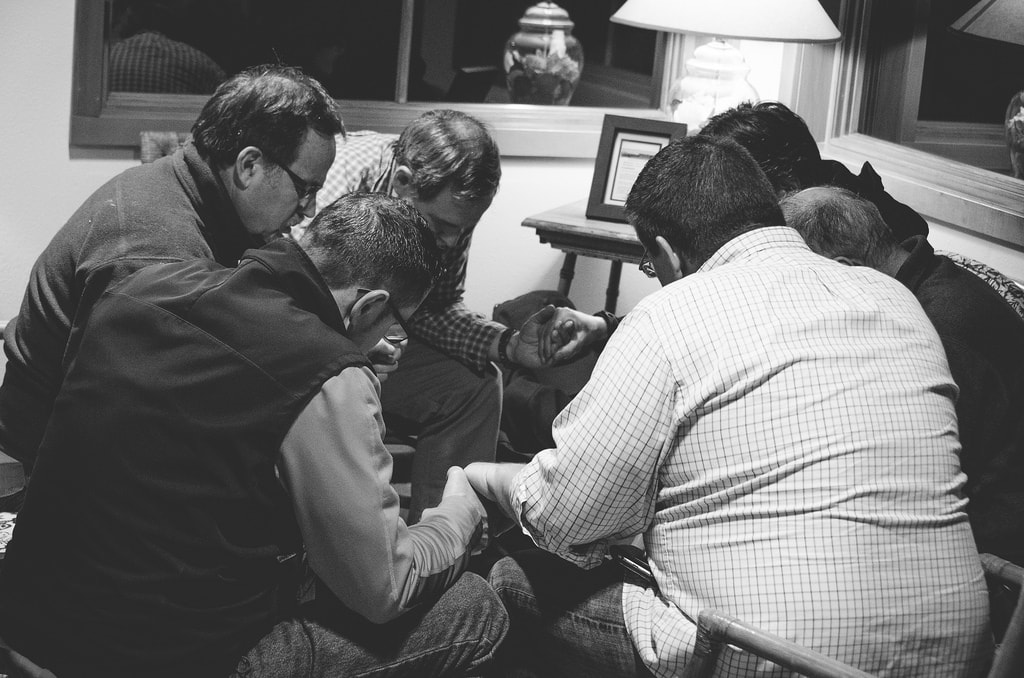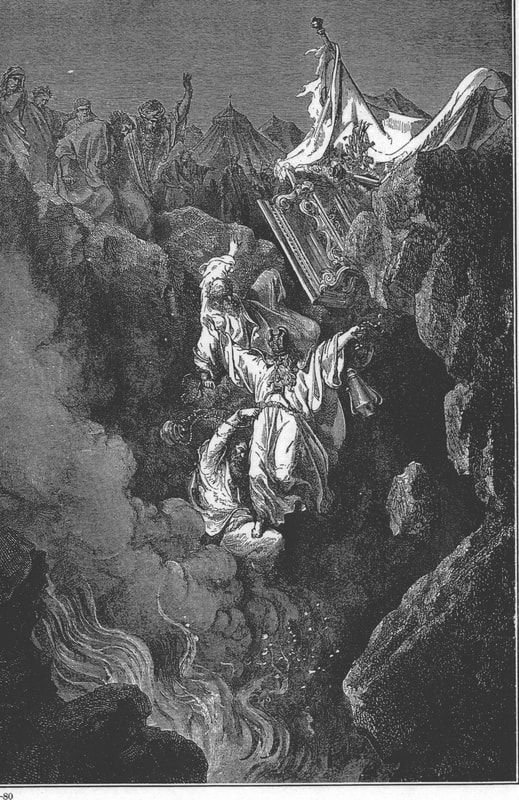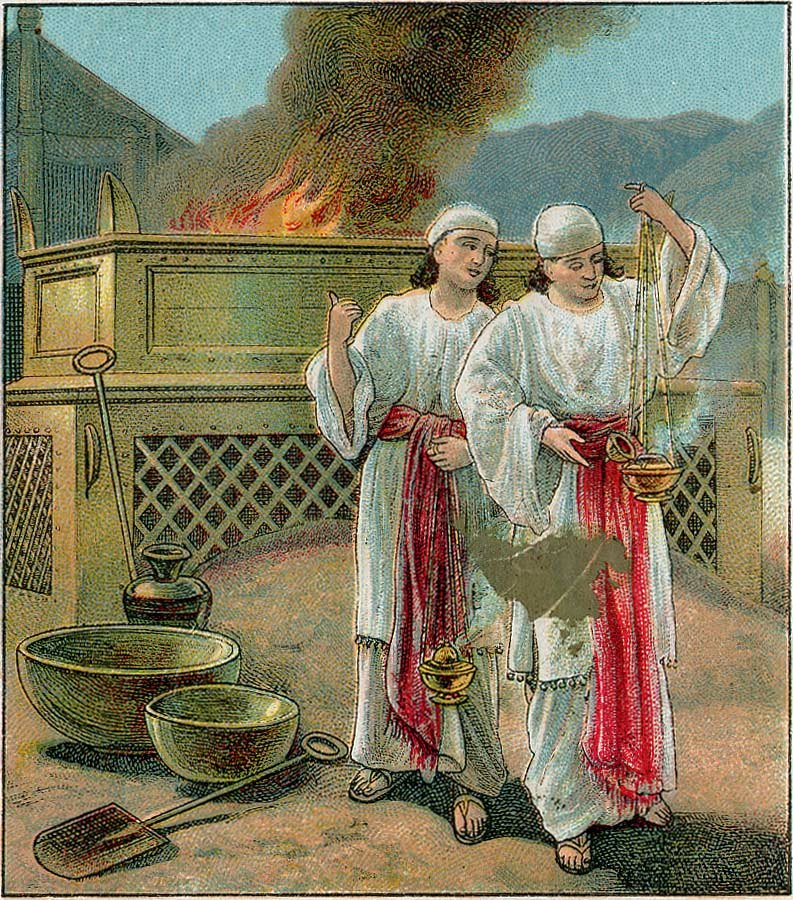|
That is, things pertaining to the end, not the last things that will be addressed in this series. Today I'll be discussing the end of the world.
There are a few core things that we must establish right from the start when discussing the end of the world, that are universal to Christians. First, that the world will end. This earth is a temporary home, a place that will be destroyed and replaced in God's perfect timing. It is our responsibility (mankind has been placed in stewardship over it) but it is not our ultimate, perfect home. Second, that the end will include, at some point in the proceedings, the literal, physical return of Jesus Christ to consummate His direct and overt rule over creation, overthrow evil, judge the living and the dead, and initiate the perfected state of creation where He will live with His people for all eternity. Some views hold that He will do all of these things at once, others space them out, but the exact temporal relationship of these events is a secondary issue. The point is that His return will be real, physical, and undeniable. Views which hold to a purely spiritual or hidden return of Christ are, by definition, outside the bounds of historical orthodox Christian teaching. Third, that we will not know the time of the end of the world until it is happening. God has not given us information that can be used to accurately date the return of Christ or the events immediately surrounding His return, and we have assurances that He will not provide that information at a later date. Anyone who claims to have divine revelation indicating an accurate date when we can expect the return of Christ is a false teacher, even if by some statistical oddity they happen to pick the correct date.
The bulk of the dispute among Christians concerning the end of the world is about sequence, almost always centered on two events: The Millennium, and The Great Tribulation. Adherents to every view here draw sources from various places throughout the Bible, but both concepts are really given their identity in the Revelation or Apocalypse of John, the last book in the Bible. This is, ultimately, the reason these concepts are so hotly debated; Revelation is, itself, a book that faces a great deal of dispute over how to rightly interpret it. Without agreement on how to even read the book, we will not come to a consensus on how to understand it. Why this book in particular occupies such a contested place in Christian thought is that it is a different genre than the entire rest of scripture; it has parallels to prophetic books in the Old Testament, but unlike them it offers little, if any, context for most of its visions and no clear interpretations. This lack is shared with wisdom literature, like Proverbs or Job, but these tend to lack sweeping prophetic visions and are more concerned with a life spent well in God's world, which is very hard (if not impossible) to impose on the narrative of Revelation. The beginning is very much suited to study as part of the general epistles, but the exact relationship between the opening letters to the seven churches and the following prophetic visions isn't overtly given within the text; except that it suited the purposes of Christ, for whatever reason, to bundle them together into one delivery. It clearly isn't history or biography or law. It isn't alone in Greek or even Christian-adjacent writing, as there are other apocalyptic works from the first few centuries of Christianity and beyond, but the fact that Revelation is scripture and these others are not demands that it be held to a higher standard than they, but this is little help. Presumably it's doing what they are trying to do, in that it is an accurate and trustworthy form of the claims they are making, but the apocalyptic genre itself is fairly nebulous about whether it's even talking about the future or characterizing the present. What we are left with, then, is a book that cannot be easily placed in our standard boxes, and must be analyzed on its own terms; assuming we know what those terms are. For the purposes of my theology and this article, we will be operating from the assumption that Revelation was written to inform people in the present how to trust, follow, and love God rightly in light of the future. As such, the prophetic elements are taken as things which are yet to come, that highlight the need for the warnings and affirmations found in the seven letters that preface those visions. The book of Revelation, then, is all of one piece; just like the other epistles, Revelation gives truth and application, and unlike most of the other epistles, this truth is new information about future events delivered in prophetic visions. So what are these two events that find their definition in Revelation?
Then I saw an angel coming down from heaven, holding the key of the abyss and a great chain in his hand. And he laid hold of the dragon, the serpent of old, who is the devil and Satan, and bound him for a thousand years; and he threw him into the abyss, and shut [it] and sealed [it] over him, so that he would not deceive the nations any longer, until the thousand years were completed; after these things he must be released for a short time. Then I saw thrones, and they sat on them, and judgment was given to them. And I [saw] the souls of those who had been beheaded because of their testimony of Jesus and because of the word of God, and those who had not worshiped the beast or his image, and had not received the mark on their forehead and on their hand; and they came to life and reigned with Christ for a thousand years. The rest of the dead did not come to life until the thousand years were completed. This is the first resurrection. Blessed and holy is the one who has a part in the first resurrection; over these the second death has no power, but they will be priests of God and of Christ and will reign with Him for a thousand years.
|
The Great Tribulation
|
|
Then one of the elders answered, saying to me, "These who are clothed in the white robes, who are they, and where have they come from?" I said to him, "My lord, you know." And he said to me, "These are the ones who come out of the great tribulation, and they have washed their robes and made them white in the blood of the Lamb.
Revelation 7:13-14 (NASB)
For then there will be a great tribulation, such as has not occurred since the beginning of the world until now, nor ever will. Unless those days had been cut short, no life would have been saved; but for the sake of the elect those days will be cut short.
Matthew 24:21-22 (NASB)
The sequence of events in Matthew, where the "Abomination of Desolation" is discussed and then people flee before the Great Tribulation, is sometimes associated with the idea of the Antichrist as a distinct character. This view was already established within Dispensational theology, but really hit the mainstream with the Left Behind books and movies. The basic idea is that there is a distinct person who will stand as a primary Antichrist world leader that will fulfill the evil desires of the world in rebellion against God and initiate a period of suffering by setting himself up as a divine, probably in the Jewish temple in Jerusalem. This, of course, relies on a few things falling into place (like the re-establishment of Jewish temple worship in Jerusalem), and assumes much. For instance, the term 'antichrist' is used primarily as a class of spirit or false teacher in scripture, rather than a descriptor for a specific individual, and some of the things attributed to this Antichrist are more clearly described in Revelation as being the actions of someone bearing a different title (generally the Beast or the false prophet of the Beast).
But discussion about the Great Tribulation is incomplete without discussion of the rapture, since the two events are often tied together. The rapture is the belief that Christians, alive and dead, will be removed from the world and taken up to meet Christ in the sky, to return with Him when He arrives to establish His direct and absolute rule over the Earth. Their relationship is so bound together in modern theology, in fact, that the primary views of the rapture are named for their relationship to the Great Tribulation. They are:
- Pre-Tribulation: This view holds that the rapture will occur before the Great Tribulation and is almost universally tied to the belief that the Great Tribulation will be a seven-year period initiated by the political rise of the Antichrist, in which the world enjoys roughly 3.5 years of peace and prosperity under his influence, at which point the Antichrist desecrates the Jewish temple in Jerusalem by declaring himself God there; this launches the remaining 3.5 years of global suffering under the tyrannical rule of the Antichrist. It is most commonly held as part of Dispensationalism, because it assumes that the Great Tribulation is a period of judgment which doesn't apply to Christians (some views hold, in fact, that it is specifically a time of judgment against the Jewish people for rejecting Christ; this view is not universal, but is fairly innate to Dispensational thought itself). Whatever the nature of the Great Tribulation, a pre-trib view holds that Christians will not be present for it aside from those who come to faith during it.
- Mid-Tribulation: This is the least common of the three views, and while it largely agrees with the timeline and purposes as stated by the pre-trib view, it holds that God will wait to withdraw His people until just before the worst bits happen; generally this means the rapture happens as part of the sequence of events in which the Antichrist declares himself to be God.
- Post-Tribulation: This view holds that the rapture will happen only after the Great Tribulation has passed, and does not require that the Great Tribulation even be a specific period of time. It is the belief that Christians meeting Christ in the air are not escaping anything, but rather welcoming Christ during His triumphal return. This view holds that the return of Christ and the rapture occur together, which means that Christians would rise up to meet Christ and then immediately accompany Him as He continues His descent to Earth. It allows for almost any view of the Great Tribulation itself, from the seven-year timeline held by the other two views to a belief that the Great Tribulation is just a way to describe the fact that Christians can become martyrs during this time, and any view in between. It is frequently paired with amillenialism, but that connection is more important to the amill view than to the post-trib view (that is, almost every amill is post-trib; a great many post-trib adherents are not amill).
I hold to a post-tribulation view and a belief that the Great Tribulation is more of a general descriptor of bad times than a specific time period. I believe that the Abomination of Desolation and the following need to flee as described in Matthew 24:15-20 is the destruction of Jerusalem in 70 ad, and the period Christ describes partly as the Great Tribulation and the age of false Christs is more or less just the current period of time beginning with the fall of Jerusalem and continuing until Christ returns. I am, admittedly, less certain on that idea at this time than I am of the claim that the rapture is post-trib. I am absolutely convinced the rapture is post-trib, for a few reasons. One is simply the nature of God toward His people; throughout scripture, God leaves His people to deal with trying times, offering them His presence through those times but not removing them from them. I do not see in the God of the Bible a tendency that would point to Him pulling His people out of the Great Tribulation. But, more importantly, the Bible tends to describe the rapture as happening after the Great Tribulation or in conjunction with Christ's return. Consider these two passages where we get a lot of our idea about the rapture:
For the Lord Himself will descend from heaven with a shout, with the voice of [the] archangel and with the trumpet of God, and the dead in Christ will rise first. Then we who are alive and remain will be caught up together with them in the clouds to meet the Lord in the air, and so we shall always be with the Lord.
1 Thessalonians 4:16-17 (NASB)
But immediately after the tribulation of those days THE SUN WILL BE DARKENED, AND THE MOON WILL NOT GIVE ITS LIGHT, AND THE STARS WILL FALL from the sky, and the powers of the heavens will be shaken. And then the sign of the Son of Man will appear in the sky, and then all the tribes of the earth will mourn, and they will see the SON OF MAN COMING ON THE CLOUDS OF THE SKY with power and great glory. And He will send forth His angels with A GREAT TRUMPET and THEY WILL GATHER TOGETHER His elect from the four winds, from one end of the sky to the other.
Matthew 24:29-31 (NASB)
But of that day and hour no one knows, not even the angels of heaven, nor the Son, but the Father alone. For the coming of the Son of Man will be just like the days of Noah. For as in those days before the flood they were eating and drinking, marrying and giving in marriage, until the day that Noah entered the ark, and they did not understand until the flood came and took them all away; so will the coming of the Son of Man be. Then there will be two men in the field; one will be taken and one will be left. Two women [will be] grinding at the mill; one will be taken and one will be left.
Matthew 24:36-41 (NASB)
All told, then, I believe that the Great Tribulation is already underway, and that the judgment of God is already being poured out on the world in some measure. This present age will end with the triumphant return of Christ, with His people (alive and dead) rising to meet Him and join His procession to Earth, at which point He will initiate the Millennium of direct, overt reign in an undeniable and unmistakable coronation. After the Millennium is over, the final judgment will come, followed by the institution of the New Heaven and New Earth, where we will live with Christ for eternity.

In the interest of limiting our focus to avoid repetition, the outline for this post will actually be drawn from Jude.
Jude 20-25 (NASB)
Growing in Faith | |
|
The Christian life is a dynamic one. It is not static and unchanging, we do not begin with all the answers, and we have to spend the rest of our lives growing. Jude begins his exhortation by reminding us that the work of growing is to be built on faith. It is by fixing ourselves on the hope of salvation, on Christ, that we are made pure and the Christian life begins to manifest in our lives.
|
And everyone who has this hope [fixed] on Him purifies himself, just as He is pure. 1 John 3:3 (NASB) |
1 Peter 2:4-5 (NASB)
Prayer in the Holy Spirit | |
|
The end of all things is near; therefore, be of sound judgment and sober [spirit] for the purpose of prayer. 1 Peter 4:7 (NASB) |
Jude adds prayer to his exhortation. Prayer is necessary for all the rest of this. We cannot be growing in Christ if we are not in communication with Christ, we will not keep ourselves in the love of Christ or live in light of His next coming if we do not lean on Him for our strength. More on this will actually be covered below, but for now, prayer is the means by which these things become real in our lives.
|
Keep in the Love of God | |
|
The Christian life is marked by love, specifically, that we are living out the love of Christ. This means that the Christian life must be lived in community, and that how we then treat one another (and those outside of the church) must reflect the way God loves us. We cannot be living out the Christian life if our lives do not, in fact, look like Christ; and how we love one another, and the degree to which we do so, is critical to that.
|
Now I ask you, lady, not as though [I were] writing to you a new commandment, but the one which we have had from the beginning, that we love one another. 2 John 5 (NASB) |
Hebrews 10:23-25 (NASB)
Waiting for Eternal Life | |
|
Since all these things are to be destroyed in this way, what sort of people ought you to be in holy conduct and godliness, looking for and hastening the coming of the day of God, because of which the heavens will be destroyed by burning, and the elements will melt with intense heat! But according to His promise we are looking for new heavens and a new earth, in which righteousness dwells. 2 Peter 3:11-13 (NASB) |
The Day of the Lord is the period of judgement that ends the systems of this world and initiates the final rule of Christ. The specifics of this period vary based on interpretive system, but all of them mark this a decisive line between the age of the church in the world and the next age.
The method of interpreting that is not a necessary topic for this post. The point is that there is a judgement coming, and those of us in Christ will be brought safely through into glory, and we must look to that day as we live out lives now. As said before, we must know where we are going if we seek to go there well. And, whether or not we are prepared, we will be going here. |
1 John 2:28 (NASB)
Discernment | |
|
Verses 22 and 23 of Jude give some input on what all of the above looks like in direct interaction with others, but the thing I'd like to narrow in on is that it assumes that his hearers have some way to know which approach is appropriate for the situation. The lifestyle he is proposing, then, requires a certain amount of discernment.
|
And have mercy on some, who are doubting; save others, snatching them out of the fire; and on some have mercy with fear, hating even the garment polluted by the flesh. Jude 22-23 (NASB) |
Revelation 2:2-3 (NASB)
Hebrews 4:12-13 (NASB)
Benediction | |
Hebrews 13:20-21 (NASB)
|
[Act] as free men, and do not use your freedom as a covering for evil, but [use it] as bondslaves of God. Honor all people, love the brotherhood, fear God, honor the king. 1 Peter 2:16-17 (NASB) |
Applying these principles paint, in broad strokes, everything this series has sought to cover. The general epistles heavily concern themselves with these aspects of our relationship to God. The authors encourage us to see God's glory, to rely on His power, and to live under His authority, even when this puts us at odds with the world around us. We do ourselves a disservice when we gloss over these books; their words are as important to us today as they were to the original readers.
|
1 John 5:5 (NASB)
| I have taken a few discipleship groups or classes where we were asked to find a passage that summarizes salvation, and in every case what was cited were John 3:16 or one of maybe three sections of Paul's writing. And again, this is fine, Paul did write about this and his writing is super helpful. But in our study of the general epistles as a body worthy of equal consideration, we cannot ignore what they have to say about salvation and redemptive history. I'd like to try something that came to mind while I was reading and sorting and preparing this series, and that is actually to pull the nature of salvation from the letters to the seven churches, in chapters 2-3 of Revelation, and use those as a guide to the way the rest of the general epistles handle the subject. We will be exploring the "He Who Overcomes" statements. Each of these is tailored to the church that is receiving it, but taken together, they create a picture of what salvation is. |
Eden Restored | |
Revelation 2:7 (NASB)
|
Then the LORD God said, "Behold, the man has become like one of Us, knowing good and evil; and now, he might stretch out his hand, and take also from the tree of life, and eat, and live forever"-- therefore the LORD God sent him out from the garden of Eden, to cultivate the ground from which he was taken. Genesis 3:22-23 (NASB) |
Now, God was not concerned about us pulling a fast one on Him and eating from the tree when He wasn't looking. Having access to the tree was not some threat to Him. But there was a need to separate mankind from the Tree of Life, and so God did. Now, we will explore more about the promise of life in the next section, but the point for right now is that Christ is promising through John that there will be a restoration to the perfect created order, that we will again be in the paradise of God and have access to, not only the Tree of Life, but the giver of life Himself.
|
Hebrews 4:2-5 (NASB)
The Second Death | |
Revelation 2:11 (NASB)
Revelation 20:14-15 (NASB)
|
John himself also summarizes this promise when he says, "The world is passing away, and [also] its lusts; but the one who does the will of God lives forever" (1 John 2:17 NASB). Jude focuses on the negative side of that arrangement in verses 5-7, where he points to Sodom and Gomorrah as evidence of the destruction that awaits those who are not in Christ.
This promise of eternal life shows up a few times in these two chapters of Revelation, as we've already seen one in access to the Tree of Life above. This, then, is our second note about salvation as the general epistles understand it: it is eternal life, and stands in stark contrast to the judgment that will fall on those who remain enemies of God. |
Since all these things are to be destroyed in this way, what sort of people ought you to be in holy conduct and godliness, looking for and hastening the coming of the day of God, because of which the heavens will be destroyed by burning, and the elements will melt with intense heat! But according to His promise we are looking for new heavens and a new earth, in which righteousness dwells. 2 Peter 3:11-13 (NASB) |
A New Foundation | |
Revelation 2:17 (NASB)
The manna is a theme that gets some development earlier in scripture, though it isn't as strongly recurring topic. In fact, there are really only two places we need to go to get the general thrust of the story so far. The first is during the wandering in the wilderness after the exodus from Egypt, when the people of Israel were in a barren place and hungry. God sustained them with provision in the form of a miraculous bread that appeared with the morning dew that they simply gathered. While there is very little discussion of the manna after that point in scripture, it certainly left a mark on the culture, because it gets cited after Jesus feeds the 5,000. He performs the miracle, He and His disciples ship out at night, and the people find them the next day and ask for more bread as a sign. A relevant part of that conversation includes:
John 6:31-35 (NASB)
|
Therefore, since the children share in flesh and blood, He Himself likewise also partook of the same, that through death He might render powerless him who had the power of death, that is, the devil, and might free those who through fear of death were subject to slavery all their lives. Hebrews 2:14-15 (NASB) |
Whether or not the stone is a literal stone that we will be handed is an interesting discussion to have, but for our purposes here in asking what it says about salvation, we can instead focus on what is written on the stone. And what is written on the stone is, in fact, a new identity. We are, by our natures, slaves to sin, as discussed in Hebrews. We have an identity wrapped up in our relationship to the world and to death. But in Christ, we have a new identity, a new foundation to who we are, and at the very beginning of 1 John 3 we have the promise that this new identity is that we get to become children of God.
|
Glory and Power | |
Revelation 2:26-28 (NASB)
Revelation 1:5-6 (NASB)
Sanctification | |
Revelation 3:5 (NASB)
Communion | |
Revelation 3:12 (NASB)
|
Hebrews deals with ideas related to this quite a lot. While Philadelphia is dealing with a "synagogue of Satan, who say that they are Jews and are not, but lie," which is definitely not wording used for Judaism as a whole elsewhere in scripture and therefore probably a localized and specific group of people, Hebrews discusses at length that the entire temple system has seen its completion in Christ and that He is better than it was ever capable of being (Revelation 3:9 NASB). Given here is one example, where Jesus is noted as being superior as an eternal priest.
|
The [former] priests, on the one hand, existed in greater numbers because they were prevented by death from continuing, but Jesus, on the other hand, because He continues forever, holds His priesthood permanently. Therefore He is able also to save forever those who draw near to God through Him, since He always lives to make intercession for them. Hebrews 7:23-25 (NASB) |
A Greater Wealth | |
Revelation 3:21 (NASB)
1 Peter 3:21-22 (NASB)
Focus of Salvation | |
1 Peter 1:3-5 (NASB)
Hebrews 2:1-4 (NASB)
James 5:7-8 (NASB)
| The general epistles do not spend their time overly concerned with describing the false teachers of their day. We can learn some information about the content of these early false teachings, but this is almost never the focus. This means that the information on identifying false teachers is widely applicable, which is very helpful. Even if it means that we have less historical context than we'd like. However, there are some indications on what, exactly, the writers of the general epistles were dealing with. |
Echoes of the Exodus | |
Hebrews 3:16-19 (NASB)
Balaam
2 Peter mentions Balaam as an archetype of the teachings he was condemning in 2 Peter 2:13-16. Here, Balaam is described as loving "the wages of unrighteousness," and those who are seen to be following after his character are described as "...stains and blemishes, reveling in their deceptions, as they carouse with you, having eyes full of adultery that never cease from sin, enticing unstable souls, having a heart trained in greed, accursed children" (2 Peter 2:13b-14 NASB). In Jude 11, readers are warned that "for pay they have rushed headlong into the error of Balaam." John condemns the church in Smyrna, "'But I have a few things against you, because you have there some who hold the teaching of Balaam, who kept teaching Balak to put a stumbling block before the sons of Israel, to eat things sacrificed to idols and to commit [acts of] immorality" (Revelation 2:14 NASB).
We know little about Balaam son of Beor, but the bulk of what we know is in Numbers 22-24, and we find in two different Biblical sources that he was later killed by the people of Israel while his town was being destroyed. The cultural understanding of what Balaam actually did must have drawn from other sources, however, because the actual narrative does not contain everything said of him here. Either way, the image being given of the false teachers of the day seem to include significant immoral behavior and an open enjoyment of their unrighteousness, as well as a certain amount of greed that drove Balaam to answer Balak's call after being told by God not to. This last point also indicates a disregard for God's command.
In Revelation, Balaam is associated with the Nicolaitans, a heretical sect which held that spiritual freedom was a license to live immoral lives and seems to have been present in Thyatira and Pergamum as well. Given the emphasis on good works in James, it is distinctly possible that the groups he was addressing were, if not Nicolaitans, at least similar to them in doctrine. If Peter and Jude have the same understanding of Balaam as John does, which seems likely from their descriptions, then they might also have been addressing the rise of the Nicolaitan sect. Given the context of the phrase in which Jude's use of Balaam appears, he may have also been citing Balaam's involvement in Balak's jealous attempts to usurp the will of God through sacrifices and condemn God's people.
| Korah At the end of Numbers 15, a man is stoned to death for gathering wood on the Sabbath. In Numbers 16, we have the story of Korah's Rebellion. Korah, a Levite, gathered some allies and accused Moses of taking more authority over the people than he had claim to, declaring that every member of the congregation was holy. The ringleaders of the rebellion are swallowed up by the earth, while those who were offering incense but were not Levites were consumed by fire from Heaven. This is a story of jealousy of God's chosen leadership, a greed for power, a system of improper sacrifices being offered to God, and a disregard for the command of God given through Moses. Korah's associates, by using holy implements to burn incense without the blessing of God or the ritual washing necessary to stand before Him, offer improper sacrifice and thereby call condemnation on themselves. |
Nature of False Teaching | |
James 3:1-8 (NASB)
The warning is simple: teachers are held to a high standards of accountability for what they teach, and the means through which they teach is corrupt and in need of purification. Our tongues can guide our entire lives, especially if we make our living through speech, and if we do not have this under control everything else will suffer. In this way he is, somewhat indirectly, warning that the false teachers, those who do not have bridled tongues, who allow blessing and curses to come from the same source, will lead themselves and their hearers astray. Everything described in the rest of that chapter, when applied to the body at large, is a matter of significant concern. When applied to teachers, it is harrowing.
|
Peter, likewise, does not focus on specific false teachers. He does directly address the existence of false teachers in his second epistle. however, and in this he gives us some important information to know about them. He notes some ideas that are growing familiar: denying the work of Christ, causing destruction and division, disregarding the command of God for righteous living, and living to greed.
Where other epistles go to the period of the Exodus, Peter goes to the writing of Old Testament prophecy. He discusses how the prophets were guided by the Holy Spirit, but false prophets arose among them. Likewise, now that a new revelation has come, false teachers are arising. It is in this discussion, interestingly enough, that Peter cites in 3:15-16 that Paul's writings are scripture--and that they are being corrupted by false teachers just as surely as prophecy was. |
But false prophets also arose among the people, just as there will also be false teachers among you, who will secretly introduce destructive heresies, even denying the Master who bought them, bringing swift destruction upon themselves. Many will follow their sensuality, and because of them the way of the truth will be maligned; and in [their] greed they will exploit you with false words; their judgment from long ago is not idle, and their destruction is not asleep. 2 Peter 2:1-3 (NASB) |
Strange Fire | |
| Balaam and Balak offered sacrifices to God in an attempt to get a favorable response from Him despite the knowledge that what they were seeking was against His will. This is an improper sacrifice. Cain offered a sacrifice that did not meet God's standards, presumably because His heart was not on pleasing God. Korah's associates used holy items to burn incense in an improper way. For this, they died, and the censers were hammered out and used as plating on the altar as a reminder to never do such a thing again. But we are now the implements of God, useful for His purposes and cleansed for holy work and tasked with the duties of priests. |
1 Peter 2:9-10 (NASB)
In contrast, then, the teacher who is honoring God properly is one who operates out of humility rather than jealousy, charity rather than greed, seeking unity and seeing life blossom in their congregations rather than destruction and division, respectful of God's commands without being legalistic, and leaning on the sacrifice of Christ rather than offering up a life that is marked by corruption. But the true mark of a sound teacher is the salvation they preach, and this will be the topic of the next post.
Archives
January 2023
September 2022
August 2022
June 2022
May 2022
April 2022
March 2022
January 2022
January 2021
August 2020
June 2020
February 2020
December 2019
November 2019
October 2019
July 2019
June 2019
May 2019
February 2019
December 2018
November 2018
October 2018
September 2018
Categories
All
1 Corinthians
1 John
1 Peter
1 Samuel
1 Thessalonians
1 Timothy
2 Corinthians
2 John
2 Peter
2 Thessalonians
2 Timothy
3 John
Acts
Addiction
Adoption
Allegiance
Apollos
Baptism
Baptist Faith And Message
Baptists
Bitterness
Book Review
Christ
Christian Living
Christian Nonviolence
Church Planting
Colossians
Communion
Community
Conference Recap
Conservative Resurgence
Deuteronomy
Didache
Discipleship
Ecclesiology
Ecumenism
Envy
Ephesians
Eschatology
Evangelism
Failure
False Teachers
Fundamentalist Takeover
Galatians
General Epistles
Genesis
George Herbert
Giving
Gods At War
God The Father
God The Son
Goliath
Gospel Of John
Gospel Of Matthew
Great Tribulation
Heaven
Hebrews
Hell
Heresy
History
Holy Spirit
Idolatry
Image Bearing
Image-bearing
Immigration
Inerrancy
Ireland
James
Jonathan Dymond
Jude
King David
Law
Love
Luke
Malachi
Millennium
Mission
Money
New England
Numbers
Pauline Epistles
Philemon
Philippians
Power
Pride
Psalms
Purity
Race
Rapture
Redemptive History
Rest
Resurrection
Revelation
Romans
Sabbath
Salvation
Sanctification
School
Scripture
Series Introduction
Sermon
Sex
Small Town Summits
Social Justice
Stanley E Porter
Statement Of Faith
Sufficiency
Testimony
The Good Place
Thomas Watson
Tithe
Titus
Trinity
Trust
Victory
Who Is Jesus
Works
Worship
Zechariah





 RSS Feed
RSS Feed
